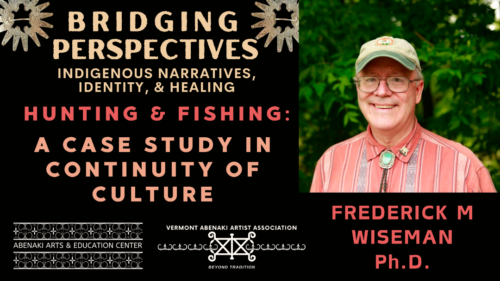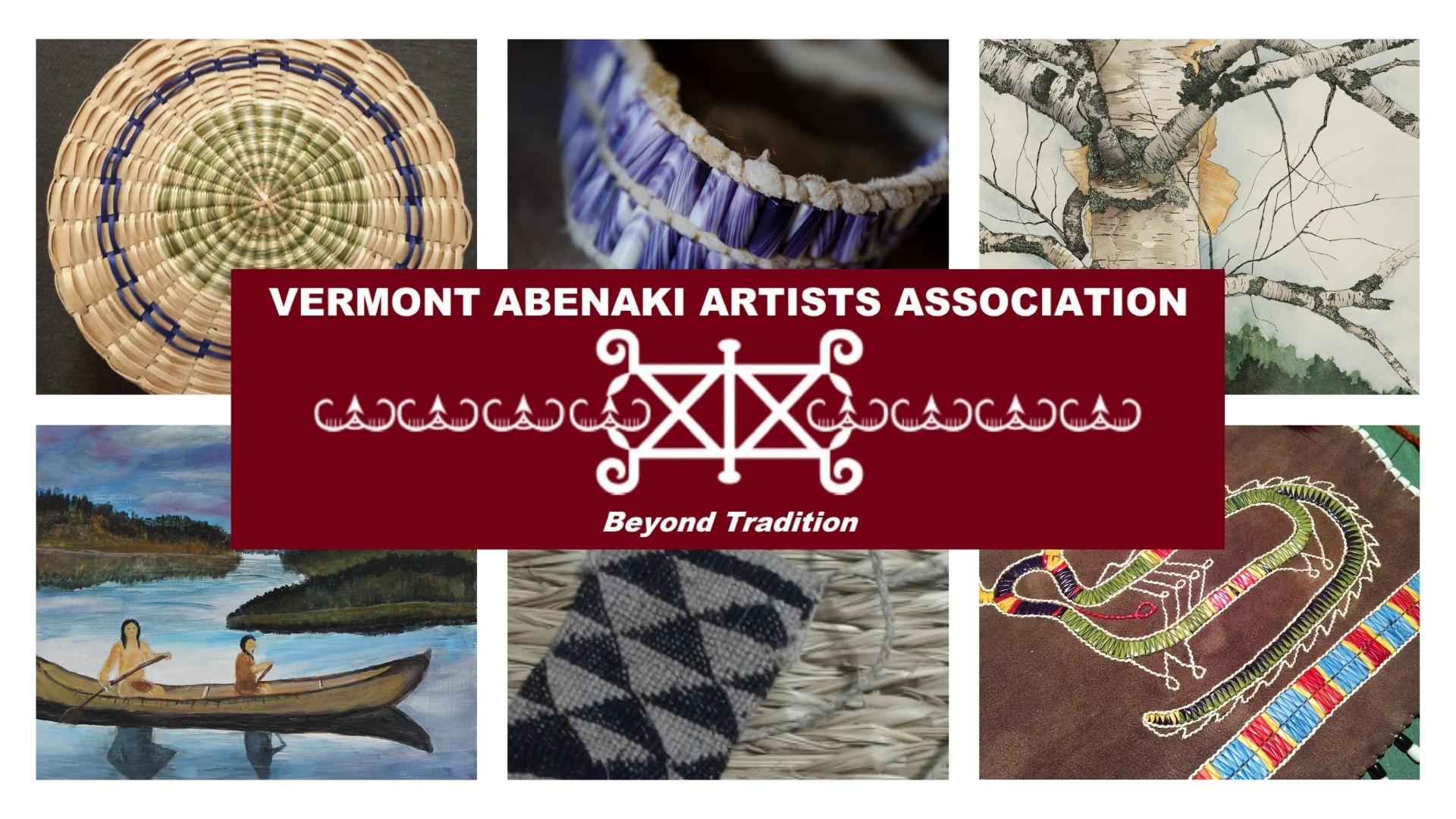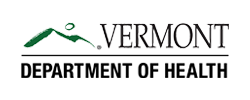
- This event has passed.
Hunting and Fishing: A Case Study in Cultural Continuity – Frederick M. Wiseman, Ph.D.

Hunting and Fishing: A Case Study in Cultural Continuity – Frederick M. Wiseman, PhD.
American Abenaki people in Vermont were and are culturally competent in many types of Indigenous hunting and trapping techniques as well as the use of traditional hunting spirituality. They have used sophisticated Native American technologies such as canoes and snowshoes to get to hunting grounds, stayed in the field in wigwams or tents, fished with spears and handlines, hunted and killed game with lances, bows, and guns, and brought it back to camp for processing. Wiseman presents abundant evidence of these activities in the form of objects, tools, historic photographs, family stories and distinctive skills passed down through generations of Abenaki families all with good documented historical Vermont provenance.
Dr. Wiseman trained as a Paleoethnobotanist at the University of Arizona’s Laboratory for Paleoenvironmental Studies and has done botanical, phytogeographic and ethnobotanical fieldwork in the American Southwest and Northwestern Mexico. After serving as Assistant Professor of Biogeography in the Department of Geography and Anthropology at Louisiana State University and as Principal Research Scientist at the MIT Center for Materials Research in Archaeology and Ethnology, where he taught courses on the ecology of the rise of Indigenous American Civilization, Wiseman returned to his Vermont roots, to teach and do research at the former Johnson State College until his retirement as Professor and Department Chair in 2014. Since 1987, he has focused on the Indigenous Wabanaki people of the far Northeast, having published popular and academic books, curricula and film on modern Indigenous culture, prehistoric archaeology, and Contact Period ethnohistory, politics and technology.
He was instrumental in the research and political advocacy that led to four Vermont Indigenous bands being recognized by the State of Vermont, for which Wiseman was awarded the first Lifetime Achievement Award by the Vermont Abenaki Artists Association. In 2018, Wiseman was honored for his work in Wabanaki revitalization in a special ceremony at Indian Township, Maine. Daniel Nolette, executive Director of the Odanak First Nation’s tribal government, recently “praised Wiseman’s work” (“A false narrative….,” Vtdigger.org, 11/14/2023), and on 11/30/2023 Odanak Chief Rick Obomsawin invited him to present his work to the Tribe.
His experience in Wabanaki and ethnobotanical studies have been brought to bear on the archaeological and Colonial Period ecology and subsistence of Northeastern Indigenous peoples and their neighbors. With his help, Northeastern Native Communities from Maryland to New Brunswick are reviving their interrupted deep-time agricultural systems, working with experimental gardens to re-configure an almost lost Northeastern agricultural heritage. He has partnered with Vermont Organics Reclamation of St. Albans, VT to create the first Northeastern agroforest based upon his paleoenvironmental work in ancestral Indigenous ecosystem management. His recent work focuses on American Abenaki wellness and trauma response and the specific use of cultural revival as a way of mitigating trauma and working toward individual and community health and wellness. He has just completed a yearlong series of workshops, a response to public concerns regarding Vermont Abenaki cultural legitimacy, consisting of illustrated lectures, demonstrations, exhibits of relevant material culture and discussions of the history of the Abenaki revival, settlement patterns, wellness, language, subsistence, ceremony, and material culture.
All opinions expressed by the Program Presenters are solely their current opinions and do not reflect the opinions of the program hosts, program partners, and sponsors.
Register in advance for this webinar:
https://zoom.us/webinar/register/WN_zm07rJUuQIC0y7wLq5m_BA
After registering, you will receive a confirmation email containing information about joining the webinar.
This event is FREE, but donations are appreciated.
Questions? Send your questions to [email protected]
Sponsored by

